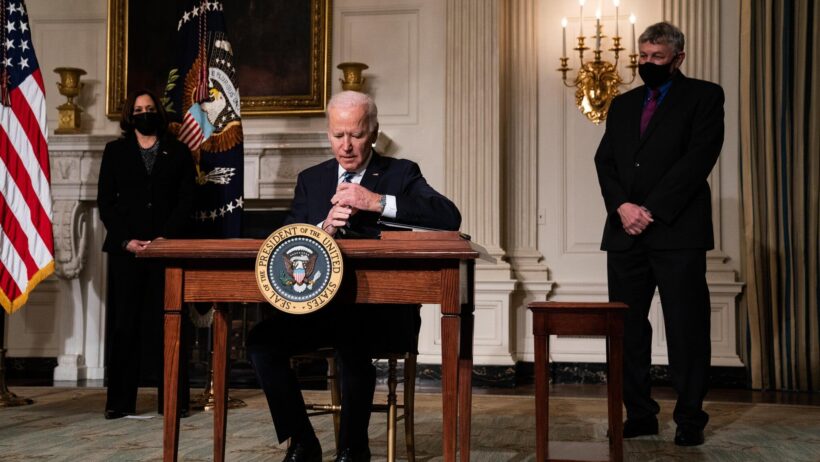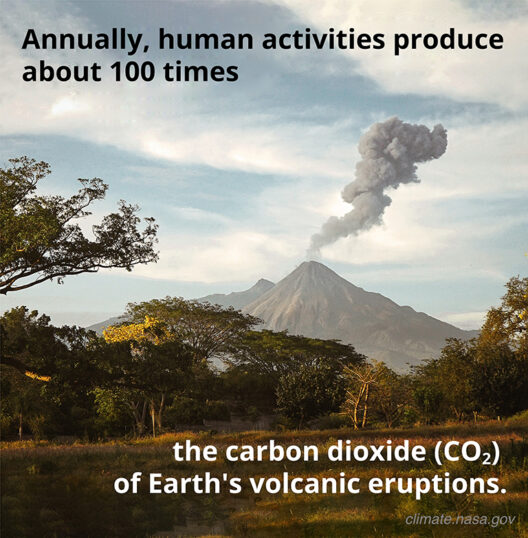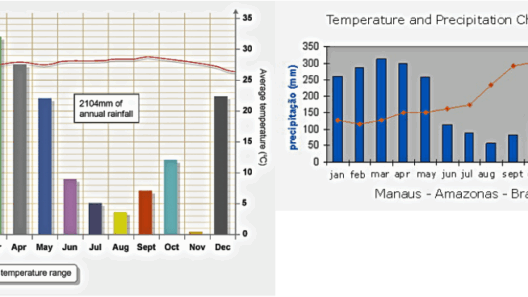Climate change, one of the most pressing challenges confronting humanity, demands urgent and comprehensive action. Since taking office, President Biden has taken a series of notable steps to combat this crisis. This report card on his climate policies will delve into an array of initiatives and legislative measures aimed at decarbonizing the economy, restoring conservation measures, and promoting renewable energy sources.
Rejoining the Paris Agreement
One of Biden’s first actions was to rejoin the Paris Agreement, reversing a decision made by the previous administration. This international treaty aims to limit global temperature rise and unite nations in their efforts to combat climate change. By recommitting the United States to this accord, Biden emphasized the significance of global collaboration in addressing climate issues and highlighted an American return to multilateral diplomacy on environmental matters.
Setting Ambitious Emission Reduction Targets
Biden’s administration unveiled an ambitious goal to reduce greenhouse gas emissions by at least 50% by 2030, relative to 2005 levels. This target aligns with scientific research urging drastic cuts to avert the direst effects of climate change. Achieving it will require sweeping reforms across various sectors, including transportation, energy, and agriculture. The assertion of such a target not only galvanizes federal efforts but also positions the United States as a global leader in climate action, encouraging other nations to elevate their commitments.
Infrastructure Investment and Jobs Act
A landmark initiative under Biden’s tenure is the Infrastructure Investment and Jobs Act, which allocates substantial funding for projects that promote sustainability. This comprehensive bill focuses on modernizing public transportation, upgrading water systems, and enhancing energy efficiency in buildings. By investing in green infrastructure, Biden aims to create jobs while simultaneously addressing climate resilience and sustainability. Transitioning to a clean energy economy not only reduces emissions but also fosters economic growth.
Clean Energy Revolution
In a significant effort to transition the United States towards renewable energy, Biden has proposed incentives for solar, wind, and other sustainable energy industries. The expansion of tax credits for clean energy projects is a crucial component of his plan. By promoting these forms of energy, the administration seeks to decrease reliance on fossil fuels and diminish carbon output. The vision is clear: a future where clean energy becomes the norm, not the exception.
Tackling Environmental Justice
Biden’s climate strategy emphasizes environmental justice, acknowledging that marginalized communities often bear the brunt of climate impacts. The administration has committed to ensuring that 40% of the overall benefits of federal investments in climate and clean energy flow to disadvantaged communities. This approach seeks to rectify historical inequalities by prioritizing initiatives that not only combat climate change but also uplift those affected by it. Climate action is thus reconceptualized as a vehicle for social equity.
Pledges to End Fossil Fuel Subsidies
Although Biden has encountered significant political resistance, he has pledged to eliminate fossil fuel subsidies. The proposition recognizes that financial incentives for the fossil fuel industry exacerbate environmental degradation and delay the transition to renewables. By reallocating public funds towards clean energy, the administration aims to catalyze a more sustainable and equitable energy economy. Nevertheless, the success of this initiative hinges on cooperative legislative efforts.
Strengthening Regulations
The Biden administration has rekindled efforts to reinstate and strengthen numerous environmental regulations that were rolled back in previous years. Initiatives include updating fuel efficiency standards and imposing stricter emissions regulations on power plants. Such regulatory reforms serve as a bulwark against pollution and a means of curtailing fossil fuel consumption. By fostering robust regulatory frameworks, Biden seeks to institutionalize climate responsibility within industry practices.
Support for Innovation and Research
A notable aspect of Biden’s climate initiatives is the emphasis on research and innovation. Increased funding for climate research and the development of emerging technologies underscore a holistic approach to defeating climate change. Initiatives such as advanced battery technology, carbon capture, and storage (CCS) are vital to mitigating emissions and enhancing energy storage capabilities. A focus on innovation fuels curiosity about what breakthroughs lie ahead, incentivizing both public and private investments in climate resilience.
International Climate Diplomacy
Biden’s leadership has reinvigorated international environmental diplomacy. Hosting significant events, such as the Leaders Summit on Climate, has engaged nations worldwide to commit to more stringent climate actions. By fostering a collaborative atmosphere, the administration has effectively urged global partners to solidify climate commitments and incentivize sustainable practices. Collective international efforts underscore the notion that climate change is a shared predicament requiring synchronized responses.
Conclusion: A Transformative Turn or Insufficient Strides?
While tangible progress has been made under Biden’s administration, the report card reveals both strong initiatives and formidable challenges ahead. The ambition of emission reduction targets, investment in clean infrastructure, and prioritization of environmental justice showcases a transformative shift in national climate policy. However, achieving these goals requires tenacity and resilience against opposition. As public interest in climate issues grows, the administration is faced with the critical task of maintaining momentum. The pursuit of a sustainable future remains an ongoing journey, one that calls for collective action and unwavering commitment.
In essence, Biden’s climate efforts can be seen as a pivotal chapter in the narrative of environmental stewardship. The stakes are high, and the complexities of climate policy necessitate constant engagement and innovation. As society grapples with this existential crisis, the imperative remains clear: we must act decisively and inclusively to forge a sustainable world.








